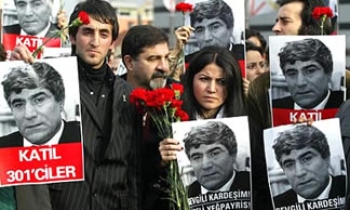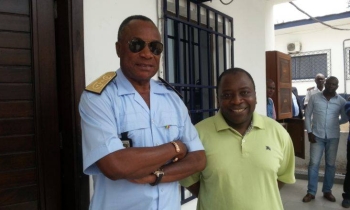UNITED NATIONS, Feb 20 (Reuters) - U.N. Secretary-General Kofi Annan made a last-minute decision to address a meeting in Qatar this weekend in an effort to calm violence triggered by the publication of cartoons about the Prophet Mohammad, his spokesman said on Monday.
Annan intends to speak at a session in Doha, the Qatar capital, of the U.N.-backed Alliance of Civilizations and address issues raised by the cartoons and ways to combat extremism, U.N. spokesman Stephane Dujarric said.
"He hopes on that occasion to meet with a number of leaders from Europe and from the Islamic world and to discuss with them ways of calming the situation and allowing a constructive dialogue between people of different faiths and traditions based on mutual understanding and respect," Dujarric said.
Annan will participate in a Sunday morning panel on "which population sectors need to be engaged to try to bridge differences and combat extremism, particularly in youth and immigrant populations," Dujarric said.
A Danish newspaper first published the cartoons last September, but Danish Muslim leaders brought them to the attention of imams in the Middle East in December and January. Many newspapers and magazines in Europe and elsewhere have reprinted the cartoons in defense of free speech.
The cartoons have sparked worldwide protests by Muslims who believe it is blasphemous to depict the Prophet.
A group of ambassadors from the 57-member Organization of Islamic Conference met Annan on Monday to discuss the Doha meeting -- and their controversial proposal to include language on religious defamation in a U.N. General Assembly resolution creating a new human rights council.
The amendment seeks to "prevent instances of intolerance, discrimination, incitement of hatred and violence arising from any actions against religions, prophets and beliefs which threaten the enjoyment of human rights..."
It also notes that "defamation of religions and prophets is inconsistent with the right to freedom of expression."
The United States and several European nations oppose the language, saying it does not belong in that text.
"It is unacceptable," U.S. Ambassador John Bolton said. "It is not a resolution that takes substantive positions."
Pakistan has been negotiating with the European Union, some of whose members want the text relegated to the preamble rather than the operative part of the resolution, diplomats said.









